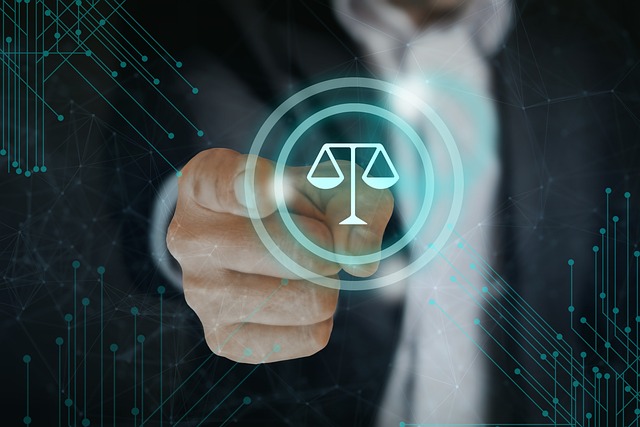Consumer protection laws serve as a crucial shield for individuals against unfair business practices, ensuring transparency, rights' preservation, and trust. These laws empower consumers to take action against fraudulent advertising, defective products, or unjust billing through legal proceedings, offering remedies and compensation. Similar to the Miranda Rights in criminal cases, consumer protection lawsuits aim to establish precedents reinforcing consumer rights, holding businesses accountable, and deterring misconduct.
Consumer protection suits play a vital role in safeguarding individuals from unfair business practices, ensuring businesses uphold their responsibilities. This article delves into the intricate world of consumer rights and legal remedies. We explore how legal proceedings serve as a powerful tool for resolving disputes, mirroring criminal rights with Miranda warnings in civil suits to protect vulnerable consumers. Understanding these laws and their purpose is essential in navigating today’s complex marketplace.
- Understanding Consumer Protection Laws and Their Purpose
- The Role of Legal Proceedings in Resolving Consumer Disputes
- Mirroring Criminal Rights: Miranda Warnings in Civil Suits
Understanding Consumer Protection Laws and Their Purpose

Consumer protection laws are designed to safeguard individuals from unfair practices and ensure a level playing field in the marketplace. These laws serve as a crucial framework, providing guidelines for businesses and protecting the rights of consumers. The primary purpose is to foster trust and transparency between buyers and sellers, ensuring that products and services meet certain standards. By holding companies accountable, these regulations aim to prevent fraud, misrepresentation, and exploitation, thus empowering consumers to make informed choices.
Understanding consumer protection laws is essential for both corporate and individual clients, as it equips them with the knowledge to navigate legal complexities. It empowers people to assert their rights and seek redress when faced with misleading advertising, defective products, or unfair billing practices. Moreover, these laws provide a safety net, offering remedies and compensation for those who have suffered losses due to business misconduct, ensuring that justice is served and achieving extraordinary results in protecting consumer interests.
The Role of Legal Proceedings in Resolving Consumer Disputes

Legal proceedings play a pivotal role in resolving consumer disputes, providing a structured framework to address grievances and ensure justice. When consumers face unfair business practices or product defects, they can invoke their legal rights and seek remedies through courts of law. This process involves meticulous documentation, witness testimonies, and rigorous argumentation, allowing both parties to present their cases. Consumer protection lawsuits aim to not only provide compensation for individual victims but also serve as a deterrent, sending a clear message to businesses about the consequences of misconduct.
For his clients, navigating these legal battles can result in winning challenging defense verdicts. Throughout all stages of the investigative and enforcement process, experienced attorneys guide consumers, ensuring their rights are protected. This includes understanding the intricacies of consumer protection laws and applying them effectively within the context of a trial. The goal is not merely to seek monetary compensation but also to establish precedents that strengthen consumer rights in the long run, mirroring the principles often associated with Miranda Rights in criminal proceedings—a guarantee of fairness and due process.
Mirroring Criminal Rights: Miranda Warnings in Civil Suits

In many ways, consumer protection suits bear striking similarities to criminal proceedings, particularly when it comes to ensuring fair treatment and safeguarding rights. Just as Miranda rights protect individuals in criminal cases from self-incrimination, a concept with roots deeply embedded in criminal law, similar safeguards are crucial in civil litigation, especially in the context of consumer protection. This parallel between criminal and civil rights underscores the importance of preserving individual freedoms even in non-criminal contexts, aiming to achieve extraordinary results by ensuring all stages of the investigative and enforcement process are conducted fairly and ethically.
The application of Miranda warnings, though traditionally associated with criminal rights in Miranda Rights in Criminal Proceedings, can serve as a powerful tool to protect consumers’ interests. By mirroring these warnings in civil suits, individuals involved can be made aware of their rights, including the right to remain silent and the potential consequences of their statements. This practice fosters transparency, prevents false accusations, and ultimately aids in avoiding indictment, ensuring that justice is served without compromising the integrity of the process.
Consumer protection suits play a vital role in safeguarding individuals from unfair business practices. By understanding the purpose and mechanisms of consumer protection laws, we can ensure that legal proceedings effectively resolve disputes. Mirroring the Miranda Warnings from criminal rights, this perspective highlights the importance of informed consent in civil suits, ensuring fairness and justice for all parties involved. These measures collectively contribute to a more robust and transparent consumer environment.






